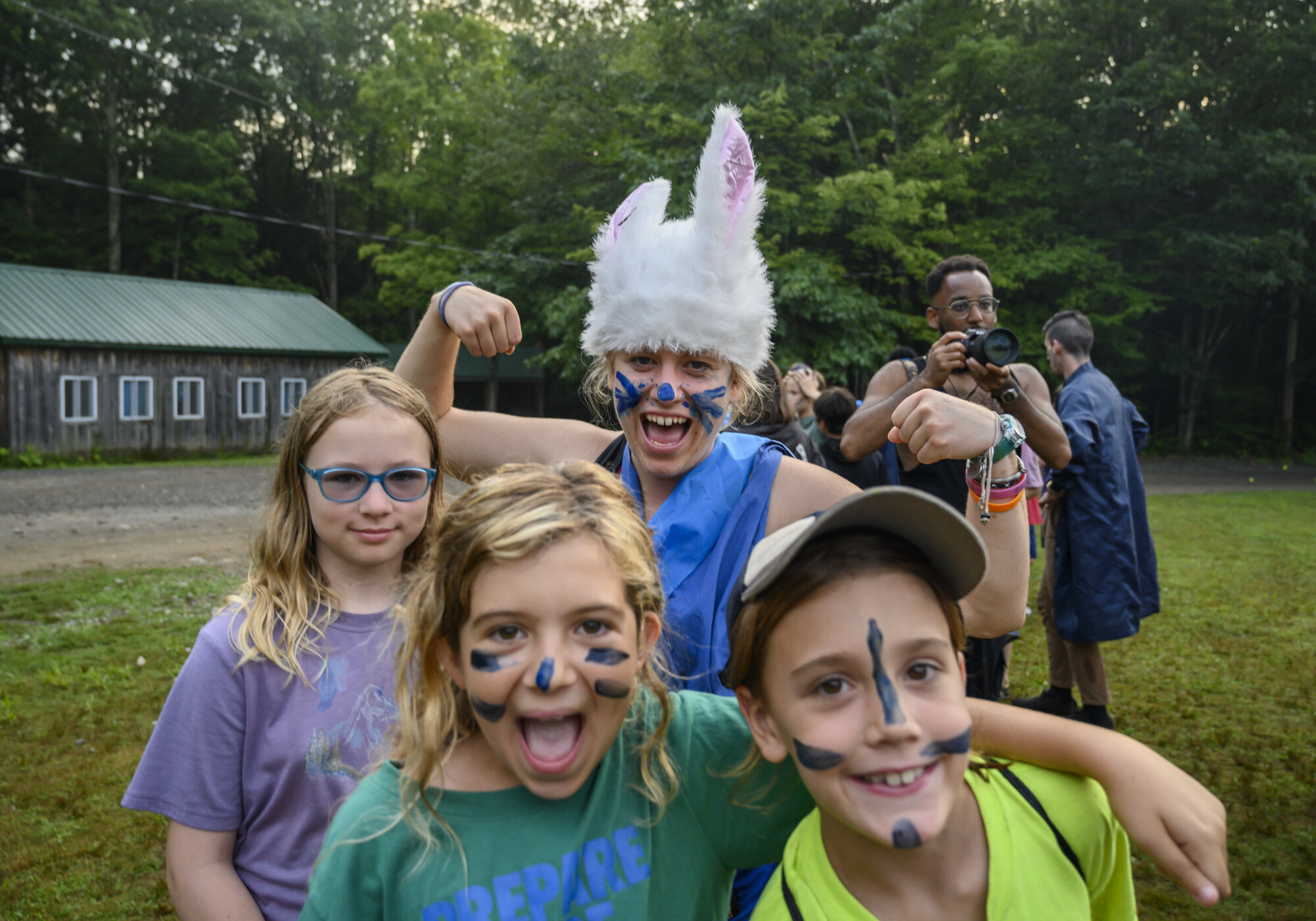Camp Builds Resilience - Mental Health Series
Camp is an antidote to the mental health crisis we are facing. Camp fosters resilience, emotional intelligence, and conflict resolutions skills. These skills will empower kids and communities to start to address the consequences of the pandemic.
We Are In A Mental Health Crisis
The uncertainty we find ourselves living with day after day is mentally exhausting. Families have been devastated by loss of loved ones, and the constant threat of more loss is paralyzing. The pandemic has exacerbated an economic crisis that is widening the already catastrophic gap between factions of our society. Black and Brown communities, and folks living in inner cities or rural areas are disproportionately affected. The many layers of uncertainty are only fueled by the lack of clear consistent direction from our elected officials.
We might not see the true impact of this pandemic for decades, but some life altering effects are already here:
In June the CDC reported a 24% increase in emergency room visits for mental health related issues in children for children ages 5-11. The same report shows a 31% for kids ages 12-17. There is a huge rise in mental health crises being reported. The American psychological Association shares that Generation Z, that is people between the ages of 8-23, are the most profoundly affected by the pandemic and the restrictions it has imposed. They cite that 34% of individuals have self reported that their mental health has gotten worse as a result of the pandemic.
These staggering statistics are the result of a population that is unsure how to process and deal with the ongoing uncertainty, prolonged stress, and intensity of emotion.
We all need a break, but especially kids.
Evolutionary psychologist, Dr. Peter Gray, studies the trends in childhood freedom. His research concludes definitively that the steady decline in child led free play outdoors has had a disastrous effect on the mental health of a generation. With the closure of schools and the need to move activities online, this generation of kids is facing even greater barriers to the benefits of child-directed free play and connection to peers. The CDC specifies certain challenges children are facing during the pandemic including: change in routine, break in learning or care, significant life events postponed or missed, and loss of safety and security.
The trauma caused by the pandemic during developmental stages of childhood may have long term consequences on an individual. Before the pandemic, studies showed that children’s lack of free play time outside increased internalized behaviors like anxiety and depression, as well as externalized behaviors like aggression and bullying. The current challenges intensify the damage already identified in Dr. Gray’s research.
Camp Builds Resilience
Fortunately, kids are resilient. Resilience, or the ability to bounce back and overcome adversity, is a skill built into childhood. Given the right environment and opportunities, kids will surmount challenges like the ones we are facing. Building resilience is a unique feature of the camp experience.
According to Harvard University’s Center on the Developing Child, the single most common factor for children who develop resilience is having at least one stable and committed relationship with a supportive adult. These adults are often parents or caregivers, however, having a caring and committed adult outside of the home adds stability and reassurance, further strengthening a young person's foundation for resilience. Camp gives kids access to compassionate adult counselors that spend everyday helping them figure out how to navigate new experiences and relationships. Other factors identified that build resilience are building a sense of self efficacy or control. At Stomping Ground we are focused on choice and autonomy. Kids choose what they want to do all day long, giving them practice in making decisions as well as controlling their own environment.
Resilience is also a result of belonging. When kids feel seen and heard by an adult that is constantly there for them, and they know that the decisions that they make change and impact their environment, they know they belong. A sense of belonging is a protective factor. According to the CDC, youth connectedness is an important protective factor for health and wellbeing. Connectedness refers to a sense of belonging found in a community such as a school setting, in a family, or through an organization. Recent CDC findings suggest that a sense of belonging or connectedness can have lasting effects on an individuals mental health well into adulthood. Youth who feel connected were 66% less likely to have risk behaviors related to mental health.
Each person has a set of protective factors and a set of risk factors unique to their situation and life experience. Kids who are exposed to more adversity also need more protective factors in order to build more resilience.
Camp builds resilience in young people because it gives them a number of ways to express their agency in a safe environment where they know they belong. At camp kids belong in a cabin group where they are able to connect to their staff and fellow campers. Campers belong in a village composed of other cabin groups with campers of similar ages, and they belong to the larger camp community. Stomping Ground focuses on building traditions and experiences that promote inclusion and connectedness. Youth in the program understand they are a part of the camp family and that the camp will be there for them for years to come. This consistency of place and people is comforting to anyone, but especially during an unprecedented pandemic where isolation and disconnection are commonplace.
This summer we are excited to welcome campers to our new site creating opportunities for resilience through connection and belonging.
Read the next article about how Camp helps kids build Emotional Intelligence.





